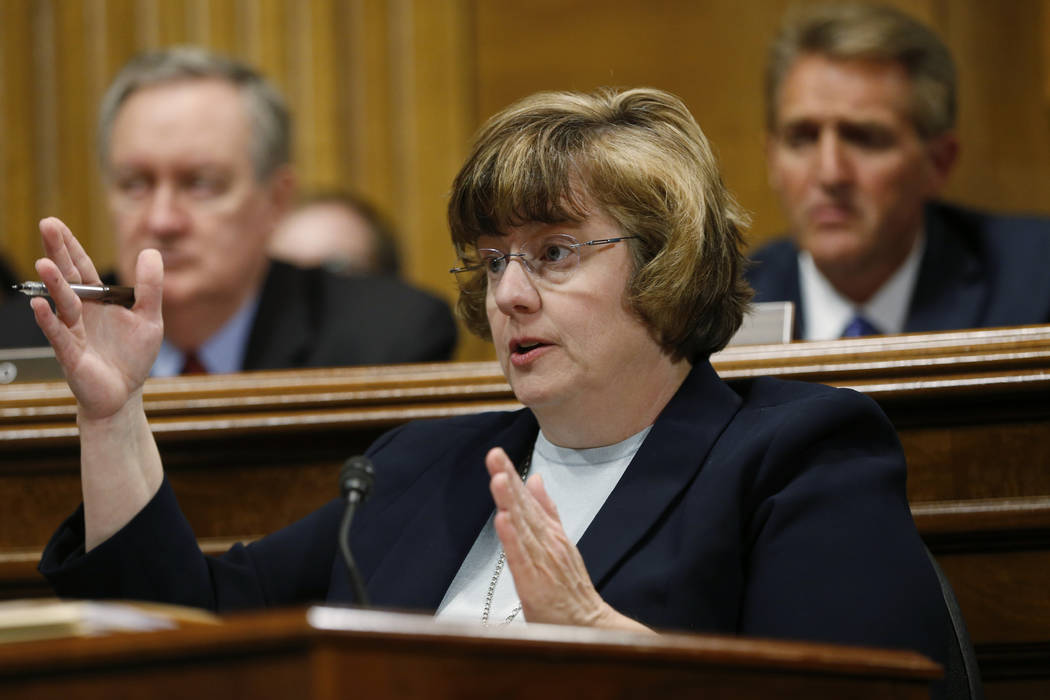Sex crimes prosecutor: Kavanaugh case doesn’t meet evidence standard
WASHINGTON — A sex crimes prosecutor brought in to question the woman who accused Supreme Court nominee Brett Kavanaugh of sexually assaulting her three decades ago said she did not believe a “reasonable prosecutor” would go forward with this case, as it did not meet a “preponderance of the evidence standard.”
In a memo to the Senate Judiciary Committee, Arizonan Rachel Mitchell said the allegations against Kavanaugh made by Christine Blasey Ford are weaker than the standard “he said, she said” case.
“This wasn’t a trial; it was a job interview,” countered Rep. Eric Swalwell, D-Calif., a former prosecutor. “If it was a trial, the prosecutor would not have missed the chance to question the defendant and call other percipient witnesses.”
In a five-page memo, Mitchell poked holes in Ford’s account of a house party she said she attended when she was 15. Ford told the Judiciary Committee that an inebriated Kavanaugh, then 17, groped her, tried to pull off her clothes and put his hand over her mouth as she tried to scream.
Mitchell noted that Ford failed to offer a date for the alleged assault, could not say in which house the party occurred and has no recollection of how she got to the party or how she got home.
Mitchell also noted that Ford had named three students who were at the house — all of whom either could not corroborate or refuted her account.
According to Ford’s testimony, Kavanaugh and his close friend Mark Judge, who she said also was drunk, were upstairs in the house when she climbed the stairs to use a bathroom. She said one of the boys pushed her into a bedroom and locked the door.
Judge has denied the incident occurred. Two other students Ford named — P.J. Smith and Leland Keyser — also stipulated under oath that they did not recall the incident. Through her lawyer, Keyser, a lifelong friend of Ford’s, said she did not know Kavanaugh.
After Ford and Kavanaugh testified last week, Keyser wrote a letter to the committee in which she reiterated that she does not know Kavanaugh but believes her friend Ford, who sent a letter to Rep. Anna Eshoo, D-Calif., and Sen. Dianne Feinstein, D-Calif., outlining the allegation while also seeking confidentiality.
Committee Chairman Chuck Grassley, R-Iowa, invited Ford and Kavanaugh to testify last week after reports of Ford’s accusation were leaked. Kavanaugh had finished private interviews and regular testimony before the committee, which was preparing to vote on his nomination.
Grassley tasked Mitchell with questioning Ford in a move that spared Republicans on the committee — all men — from appearing as bullies interrogating a lone female witness unaccustomed to hardball politics.
Swalwell described Mitchell’s role as “a human shield by male senators who were incapable of treating the victim with dignity and respect.”
Republicans have charged that Democrats waited until after Kavanaugh had testified and met with interested senators to leak the Ford story. Feinstein denies that her staff leaked the memo.
Sen. Lindsey Graham, R-S.C., has said he believes Feinstein, but he also told ABC News’ “This Week,” “We’re going to do a wholesale, full-scale investigation of what I think was a despicable process to deter it from happening again.”
Contact Debra J. Saunders at dsaunders@reviewjournal.com or 202-662-7391. Follow @DebraJSaunders on Twitter.
"In the legal context, here is my bottom line: A 'he said, she said' case is incredibly difficult to prove. But this case is even weaker than that."
-Rachel Mitchell























